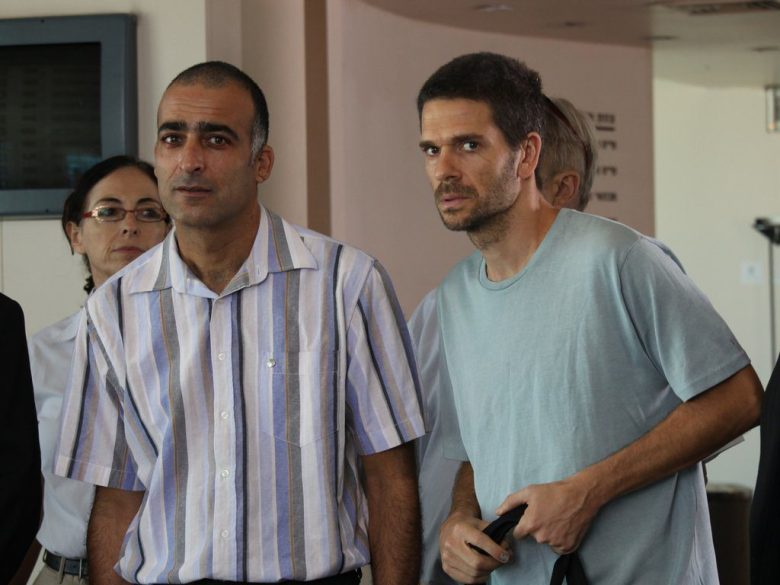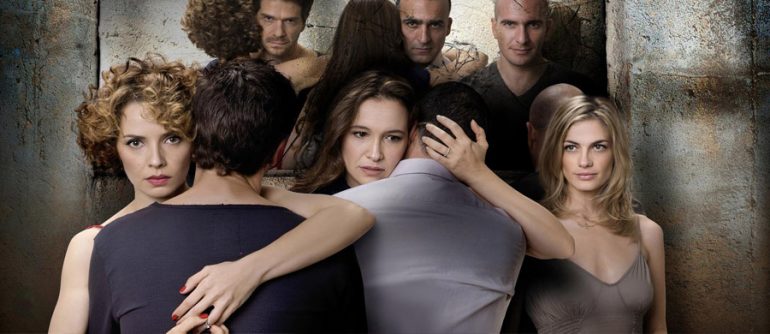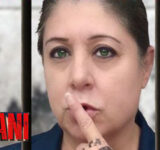By Sheryl Aronson
On September 12th, Gideon Raff producer/director/writer of the Israeli television series, Prisoners of War (Hatufim in Hebrew) conducted a Q & A after the media previewed the first episode. This project was what the critically acclaimed series Homeland was based. Raff is heavily involved in both productions and has won two primetime Emmy’s for Homeland and also won nine Israeli Emmy® Awards, including Best Directing for Raff and Best Drama Series.

Gideon Raff explained why he felt the project had to be developed in Israel first before it could be explored in the United States, “When I wrote the show it was shocking that the subject of prisoners of war was not a subject talked about here in the States; but in Israel the army is mandatory, so if anything happens to a soldier, it’s like it happened to us. But now I think people here are aware of the complexities and the horrors that these men go through.”
The dramatic series tells the story of three Israeli soldiers who were held captive for 17 years following their kidnapping while on a secret mission with their unit in Lebanon.
The first episode was riveting. Raff brilliantly introduced the audience to each of the families that were waiting for their loved one to be released from 17- years of captivity by terrorists. The tension and anxiety abounded as we watched each character deal with their emotions anticipating the return of a husband, a father, a brother, a son which the two surviving men represented. The third prisoner of war came back in a body bag and his sister experienced the devastating sorrow standing alone with her dog in the waiting room of the airport, while the two other families filled the space with their joyful emotions.
 Re-entry for the prisoners of war Nimrode Klein (Yoram Todeano), Uri Zach (Ishai Golan) was assayed with a mix bag of strained attempts on everyone’s parts to bring normalcy back into the relationships. I found my heart compressing tighter and tighter seeing the tortured looks on these men faces that twisted and turned with complexities of feeling while their female partners struggled to bridge the huge gap of intimacy.
Re-entry for the prisoners of war Nimrode Klein (Yoram Todeano), Uri Zach (Ishai Golan) was assayed with a mix bag of strained attempts on everyone’s parts to bring normalcy back into the relationships. I found my heart compressing tighter and tighter seeing the tortured looks on these men faces that twisted and turned with complexities of feeling while their female partners struggled to bridge the huge gap of intimacy.
Raff explained why he used more well-known Israeli female actors Yael Abecassis and Talia Klein rather than well- known male actors. “The women are known and the men are relatively unknown. I planned that so the male lead characters would have a hard time upstaging the women characters. Because that’s the reality of the situation when you come back after 17 years and you are used to being the center of your home…suddenly the woman who has fought for 17 years to get you back home and has been the head of the campaign for your return, and used to being in the spotlight, is now fighting the husband for the real estate of the family.”
 PRISONERS OF WAR premieres Mon. Oct. 24 at 10 p.m. ET/PT on Link TV nationwide (DirecTV 375 and Dish Network 9410) and at 10 p.m. PT on KCET in Southern California. The network will present both seasons of PRISONERS OF WAR (24 one-hour episodes) in Hebrew with English subtitles as part of its mission to offer critically acclaimed global series that educate, enlighten and entertain viewers through programming that portrays different cultures and points of view.
PRISONERS OF WAR premieres Mon. Oct. 24 at 10 p.m. ET/PT on Link TV nationwide (DirecTV 375 and Dish Network 9410) and at 10 p.m. PT on KCET in Southern California. The network will present both seasons of PRISONERS OF WAR (24 one-hour episodes) in Hebrew with English subtitles as part of its mission to offer critically acclaimed global series that educate, enlighten and entertain viewers through programming that portrays different cultures and points of view.
In addition to broadcasting the television premiere, Link TV and KCET will support the complex material presented in PRISONERS OF WAR with an online destination at LinkTV.org/POW and KCET.org/POW, which will include in-depth supporting articles, character profiles and social media videos offering viewers
a balanced perspective on a provocative series. Online features will also include original essays by Los Angeles-based writer, consultant and Jewish social influencer Esther D. Kustanowitz, Editor at GrokNation.com and Contributing Writer at the L.A. Jewish Journal.
I asked one last question of Gideon Raff about the spiritual components of the story as I had found when visiting the country, I had an amazing visceral experience of feeling the presence of God.
 He answered instantly:
He answered instantly:
“There is a very overt spiritual aspect of the story. The third prisoner of war Emil doesn’t come back, but comes back in a body bag. His sister continues seeing him and having conversations with him. Everything around the subject and the way the people held themselves together has to do with the spiritual aspect of living in Israel.”
Tune in to this provocative and engaging television series.
![]()
Join the conversation on social media using #POWseries
To find KCET local listings, visit KCET.org/FindKCET.







